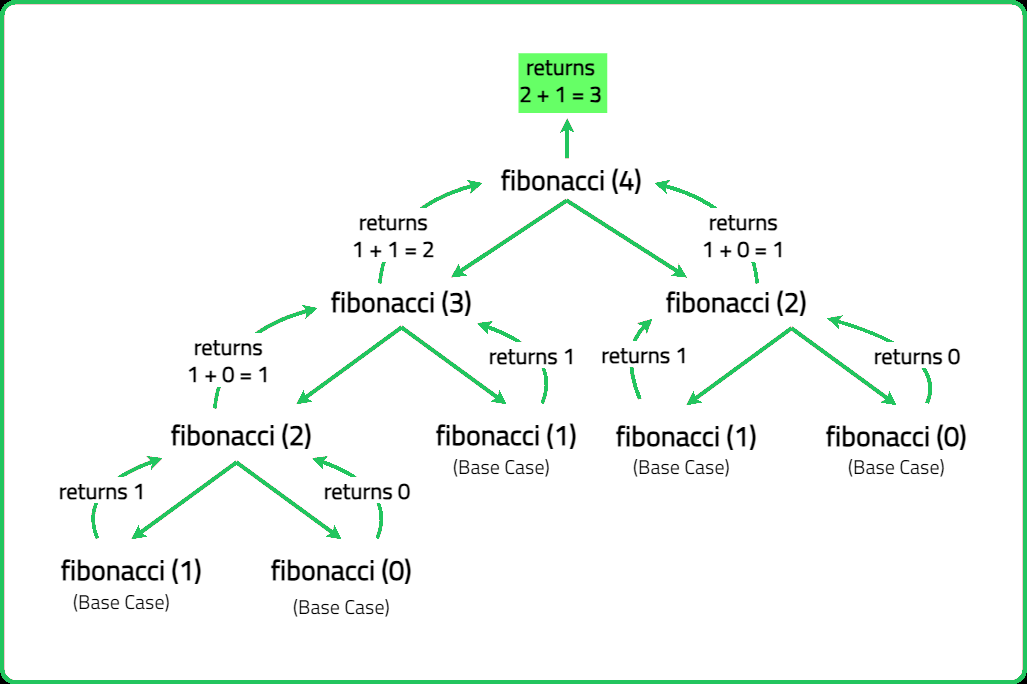Fibonacci Number
Beginner Problems
Basic Recursion
Easy
- The Fibonacci sequence is a fundamental concept in computer science and finds use in several real-world applications
- One fascinating example lies in agile project management, specifically Scrum
- Team members use Fibonacci numbers to estimate the complexity or effort required for tasks
- This system, known as Fibonacci estimation, is based on the theory that it’s harder to estimate bigger tasks with precision, so Fibonacci's ever-increasing gap between numbers reflects this uncertainty
The Fibonacci numbers, commonly denoted F(n) form a sequence, called the Fibonacci sequence, such that each number is the sum of the two preceding ones, starting from 0 and 1. That is,
- F(0) = 0, F(1) = 1
- F(n) = F(n - 1) + F(n - 2), for n > 1.
Given n, calculate F(n).
Examples:
Input : n = 2
Output : 1
Explanation : F(2) = F(1) + F(0) => 1 + 0 => 1.
Input : n = 3
Output : 2
Explanation : F(3) = F(2) + F(1) => 1 + 1 => 2.
Input : n = 6
Constraints
- 0 <= n <= 19
Company Tags
TCS
Cognizant
Accenture
Infosys
Capgemini
Wipro
IBM
HCL
Tech Mahindra
MindTree
